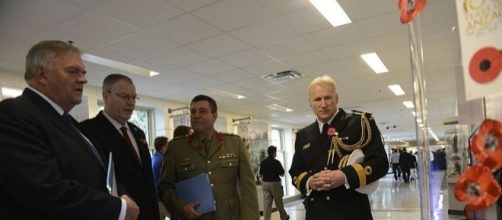Malcolm Turnbull, Prime Minister of Australia, is on his way to Germany to have talks with other G20 leaders and his deputy Barnaby Joyce is building pressure on China to intervene in the issue of North Korea and its threats to the United States. He has gone to the extent of saying that in case the situation erupts into a confrontation, Australia would stand beside America.
His statement is against the backdrop of Nikki Haley’s warning that America would not hesitate to use force against North Korea, if necessary. Pyongyang had tested an intercontinental ballistic missile that could reach Darwin in Australia or Alaska in the U.S.
which is a matter of concern for the whole world.
A probable scenario
New Zealand Herald reports that Barnaby Joyce has cautioned North Korea and, in case it proceeds with its plan to launch a nuclear missile attack on the United States, then the ANZUS alliance would enter the scene and his country would back America. He revealed that Australia would also support trade sanctions on countries like China which is providing an economic lifeline to Pyongyang. America follows the same logic and wants to discontinue trade with countries that are engaged in business dealings with North Korea
However, in spite of sanctions, the country is going ahead with its programs on developing nuclear weapons that could give rise to instability in the region.
Joyce cautioned that, if one of its missiles strikes South Korea or Japan, the economic plan for South East Asia would land in jeopardy. This has not gone down well with some leaders in Australia and they want a clarification from the government as to whether it is considering sanctions on China. Such a move would go against the interest of local farmers.
United States in a dilemma
U.S. President Donald Trump had hopes that China would play an important role in the North Korea affair. He is unhappy at the response he has received because Beijing is continuing to carry on trade with Pyongyang. In fact, the trade is believed to have grown appreciably in the first quarter.
Another factor is South Korea.
It is an ally of the United States but its new President has reservations about THAAD that has been positioned in Seoul to guard against any missile attack from the North. The new leader has kept in abeyance the deployment of THAAD because he is keen to mend relations with the North and has even talked of joining hands in the field of sports in the international arena.
As for America, it has its warships in the Korean peninsula and the President had asked the Pentagon to formulate plans for a preventive strike but in view of changed thinking in certain quarters of Australia and South Korea, he will have to weigh all the pros and cons before taking any firm action. He may have to draw up fresh strategies.


